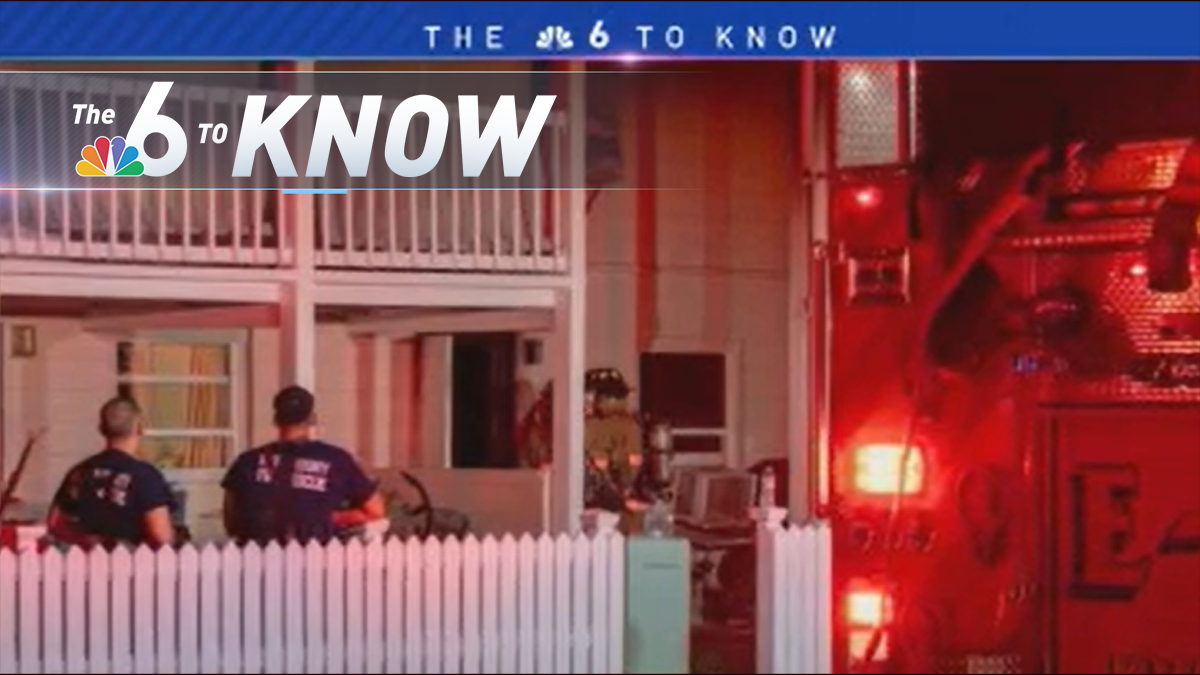With the start of the rainy season in South Florida, expect a rise in mosquitoes. NBC 6’s Claudia DoCampo spoke with a mosquito control expert about how to prevent them.
Rainy season in South Florida is officially underway and with an increase in moisture, residents may also see a rise in another problem: mosquitos.
Because Florida has a tropical climate with humidity and year-round moderate to warm temperatures, mosquitoes can be seen across the state every month of the year, but Florida’s mosquito season typically doesn’t begin until June when late spring rains turn into standing water that the insects need in order to breed.
Watch NBC6 free wherever you are
With hurricane season around the corner and more wet weather on the horizon, the potential for mosquitos is even more prevalent.
Here's what you need to know to prevent mosquito breeding and mosquito-borne illness.
Get local news you need to know to start your day with NBC 6's News Headlines newsletter.
How can I prevent a mosquito infestation in my home?
The Florida DOH is asking residents to drain standing water to stop mosquitoes from multiplying. Make sure to drain water from garbage cans, house gutters, buckets, pool covers, coolers, toys, flower pots or any other containers where sprinkler or rain water has collected.
You should also discard old tires, drums, bottles, cans, pots and pans, broken appliances and other items that aren't being used.
Local
Empty and clean birdbaths and pet's water bowls at least once or twice a week and protect boats and vehicles from rain with tarps that don't accumulate water.
If you have a swimming pool, keep it in good condition and appropriately chlorinated. Empty plastic swimming pools when not in use.
You should also make sure to cover doors and windows with screens to keep mosquitoes out of your home. If needed, repair any broken screens on windows, doors, porches, and patios.
How can I keep myself safe from mosquito-borne illnesses?
To prevent mosquito-borne illnesses cover your skin with clothing or repellent.
Wear shoes, socks, and long pants and long-sleeves. This type of protection may be necessary for people who must work in areas where mosquitoes are present.
Apply mosquito repellent to bare skin and clothing. Always use repellents according to the label. Repellents with DEET, picaridin, oil of lemon eucalyptus, para-menthane-diol, 2-undecanone and IR3535 are effective.
For children younger than two months old, use mosquito netting to keep bugs away.
Tips on Repellent Use
When using mosquito repellant, always read label directions carefully for the approved usage before you apply, and remember some repellents are not suitable for children.
According to the Florida DOH, products with concentrations of up to 30% DEET (N, N-diethyl-m[1]toluamide) are generally recommended.
Other U.S. Environmental Protection Agency-approved repellents contain picaridin, oil of lemon eucalyptus, para-menthane-diol, 2-undecanone or IR3535. These products are generally available at local pharmacies.
Make sure to apply insect repellent to exposed skin, or onto clothing, but not under clothing.
In protecting children, read label instructions to be sure the repellent is age appropriate. According to the Centers for Disease Control and Prevention, mosquito repellents containing oil of lemon eucalyptus or para-menthane-diol should not be used on children under the age of three years. DEET is not recommended on children younger than two months old.
Avoid applying repellents to the hands of children. Adults should apply repellent first to their own hands and then transfer it to the child’s skin and clothing.
For more information, click here.



